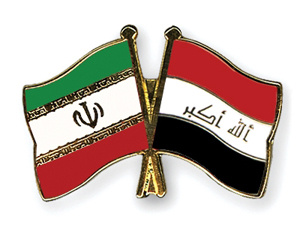Border Disputes and the Rising Iraqi Nationalism
By Sirous Bornal Boldaji, Iraqi affairs analyst

Despite the historical, cultural and religious background that Iranians and Iraqis share, border disputes have been a source of chronic contention between the two nations. Ironically, the main cause of disagreement seems to be the Algiers Accord signed by Saddam Hussein and Muhammad Reza Pahlavi in 1975. The accord which has demarcated the border between Iran and Iraq in Arvandrud/Shatt-al-Arab River has witnessed ups and downs during the last 35 years. In fall of 1980 Saddam Hussein tore up the treaty on television and started an 8-year war against Iran. In the nadir of his reign, after defeat in the Second Persian Gulf War and imposition of UN sanctions, due to the increasing isolation Saddam yielded to the accord. In March 2003, after the fall of the Baath Regime and rise of Shiites to power, a golden era of bilateral ties between Iran and Iraq seemed to be on the way.
However, as it was predictable, the honeymoon would not last forever. Every now and then we witness tensions (though sugar-coated) between the two countries. As mentioned, the major source of this tension will be age-old borer disputes. In addition, the presence of opposition group Mojahedin-e-Khalgh (MKO) in Iraq, Tehran’s pressure on the Iraqi government to expel the group and West’s support –particularly the United States- from the terrorist organization has turned into a serious problem. Another factor which may cause disputes between Iran and Iraq in the future is the unwritten agreement between the occupying forces, particularly the Americans, and senior Iraqi officials –whether Shiite, Sunni or Kurd- on the establishment of military bases in north and south of Iraq. To add up to the problems between, the two countries also accuse each other of ignoring tight border control. Illegal traffic between Iran and Iraq due to lack of control has caused serious security problems for both countries, especially Iraq.
From the remarks stated by the Iraqi president and foreign minister during the last two years, it should have become evident for Iranians that Iraqis national identity overrides their religious identity. This sense of identity will no doubt become stronger in the future. The process of nation-state building in Iraq will lead to the rise of technocrats, domination of secularism and transition of power from radicals to moderates. Nationalistic sentiments will impel the technocrat forces to rethink the treaties signed with neighboring countries. In the current circumstances, it seems that pressure from the Iranian side has forced Iraqis to show restraint and conceal their true intentions, but the truth is that despite the existence of 1975 Algiers Accord as a valid, inviolable legal agreement based on international standards, border disputes will linger and may be the bottleneck for development of Iran-Iraq ties.
However, as it was predictable, the honeymoon would not last forever. Every now and then we witness tensions (though sugar-coated) between the two countries. As mentioned, the major source of this tension will be age-old borer disputes. In addition, the presence of opposition group Mojahedin-e-Khalgh (MKO) in Iraq, Tehran’s pressure on the Iraqi government to expel the group and West’s support –particularly the United States- from the terrorist organization has turned into a serious problem. Another factor which may cause disputes between Iran and Iraq in the future is the unwritten agreement between the occupying forces, particularly the Americans, and senior Iraqi officials –whether Shiite, Sunni or Kurd- on the establishment of military bases in north and south of Iraq. To add up to the problems between, the two countries also accuse each other of ignoring tight border control. Illegal traffic between Iran and Iraq due to lack of control has caused serious security problems for both countries, especially Iraq.
From the remarks stated by the Iraqi president and foreign minister during the last two years, it should have become evident for Iranians that Iraqis national identity overrides their religious identity. This sense of identity will no doubt become stronger in the future. The process of nation-state building in Iraq will lead to the rise of technocrats, domination of secularism and transition of power from radicals to moderates. Nationalistic sentiments will impel the technocrat forces to rethink the treaties signed with neighboring countries. In the current circumstances, it seems that pressure from the Iranian side has forced Iraqis to show restraint and conceal their true intentions, but the truth is that despite the existence of 1975 Algiers Accord as a valid, inviolable legal agreement based on international standards, border disputes will linger and may be the bottleneck for development of Iran-Iraq ties.

